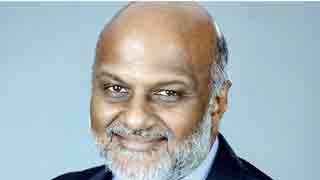Monday Feb 23, 2026
Monday Feb 23, 2026
Friday, 27 January 2023 00:02 - - {{hitsCtrl.values.hits}}
 |
| Ambassador-Designate of Cote d’Ivoire to Sri Lanka Eric Camille N’dry |
 |
| Honorary Consul Cote d’Ivoire in Sri Lanka Sheran Fernando
|
A delegation from the embassy of the Republic of Côte d’Ivoire will be visiting Sri Lanka from 31 January to 7 February.
Ambassador-Designate of Cote d’Ivoire to Sri Lanka Eric Camille N’dry, will be presenting his credentials to Sri Lankan President Ranil Wickremesinghe, while the delegation will be participating in the Conference on African Heads of Mission with the President, as well as the Independence Day celebrations.
In Sri Lanka, Côte d’Ivoire is represented by Honorary Consul Sheran Fernando,.
The delegation will also be holding business meetings with a view to building collaboration and partnerships between Sri Lanka and Côte d’Ivoire.
The Republic of Côte d’Ivoire is a West African country bordering Guinea, Liberia, Mali, Burkina Faso and Ghana.
Côte d’Ivoire is the powerhouse of the economy of French-speaking West Africa and is the gateway to the vast market of 15 West African States. It has recorded good economic and social performances since 2012, with an average growth rate of 8% in real Gross Domestic Product (GDP) between 2012 and 2019; 7.4% in 2021. All this is within a reliable macroeconomic environment characterised by an inflation rate remaining permanently below the community threshold of 3%.
With a view to consolidating and increasing the achievements in terms of economic, social and environmental development, the Government has decided to continue the strategic planning of its development through the establishment, since 2012, of a five-year National Development Plan (PND).
The current Plan spans over 2021 to 2025 and aims to achieve the economic and social transformation needed in order to raise Côte d’Ivoire, by 2030, to the rank of upper middle-income country.
Besides, in line with its liberal policy, the Ivorian Government has made the private sector the privileged actor of economic growth. Indeed, the investments expected from the private sector represent 74% of the funding for the 2021-2025 NDP, estimated at 59,000 billion FCFA.
Like emerging countries, Côte d’Ivoire has undertaken significant reforms to improve its business environment in order to promote the development of a dynamic and internationally competitive private sector.
As a competitive advantage, Côte d’Ivoire is the world’s largest exporter of cocoa beans and the fourth largest exporter of rubber in the world. It’s also the first producer and exporter of cashew nuts, third coffee and cotton producer in Africa and the fourth palm oil producer in Africa. It also plays a key role in transit trade for neighbouring land locked countries.
Furthermore, Côte d’Ivoire’s financial sector is the largest in the West African Economic and Monetary Union (WAEMU). It currently has 28 commercial banks, two specialised financial institutes, 53 microfinance institutions, four mobile operators of which three offer money market products and 21 insurance companies as well as a very attractive Investment Code which grants tax advantages to investors.
As such, there is no limitation on investors’ access to foreign currency and the transfer of investment-related assets is permitted, provided that it is always compliant with tax regulations.
There is a free zone (The Mahatma Gandhi Village of Information Technologies and Biotechnology - VITIB SA) which covers an area of 700 ha, in Grand-Bassam, a town located 20 minutes from Abidjan. Accreditation in this free zone allows the acquisition of premises or land, 0% taxes, 0% customs and 0% taxes.
As is evident, Côte d’Ivoire is a stable country with a growing economy. From 2012 to 2021, the economy grew to become the second-fastest rate of economic growth in Africa and fourth-fastest rate in the world. (IMF: “World Economic Outlook database: April 2022”)
Côte d’Ivoire is a signatory to trade agreements within the African Community.
It is also a beneficiary of the US African Growth and Opportunity Act (AGOA) which allows the country to export a certain number of goods into the United States tariff-free.
Under the Economic Partnership Agreement (EPA) with the European Union, Côte d’Ivoire gets duty-free, quota-free access to the EU.
In 2018, Côte d’Ivoire signed the African Continental Economic Free Trade Zone (AfCFTA) agreement and in 2020, an EPA with the United Kingdom which replicates the tariff treatment under the European Union.
Côte d’Ivoire could be a gateway into the African continent for Sri Lankan businesses looking to break into the region. Its trade agreements with the US, EU and UK and the market access it provides makes it a country ripe for investment.